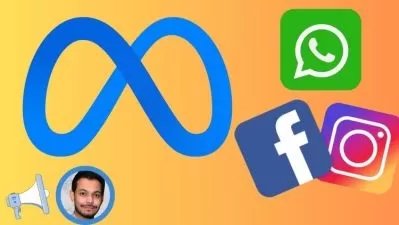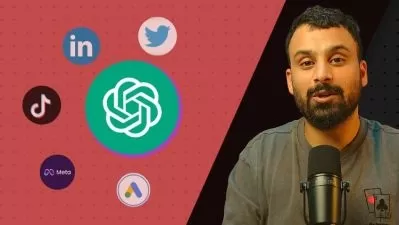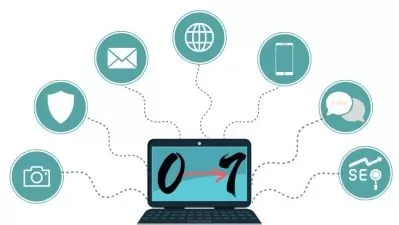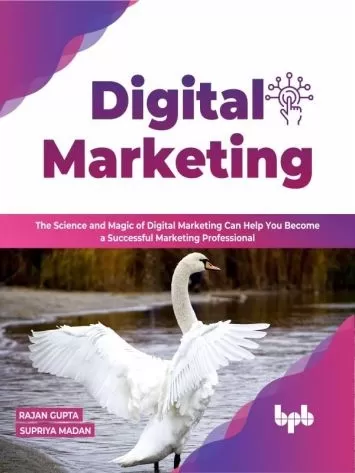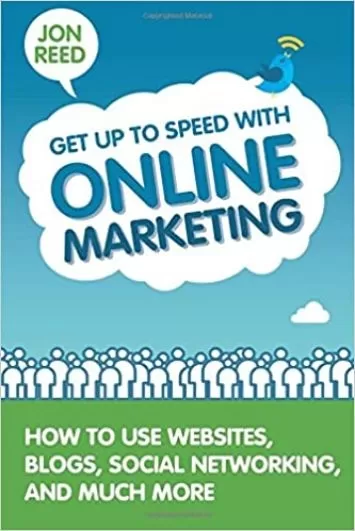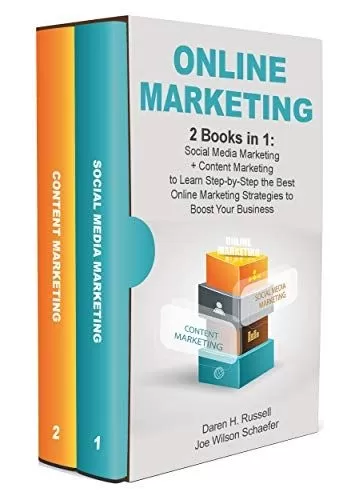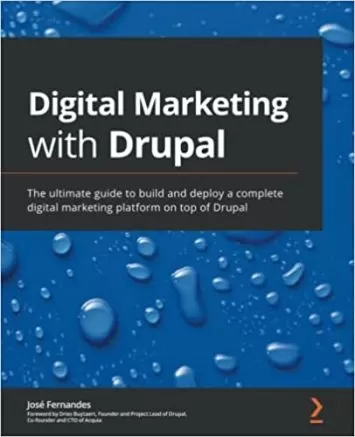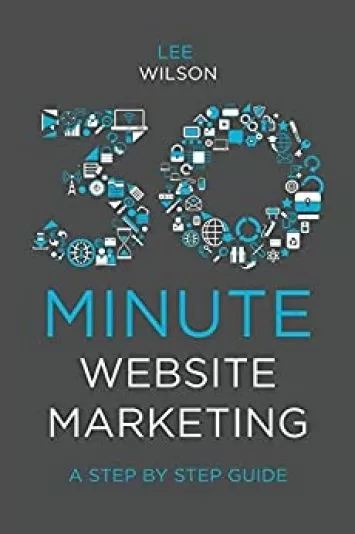About Digital MarketingLearn More
The term digital marketing refers to the set of activities that are carried out in order to promote products and services using digital tools. In fact, all the activities that are done in order to advertise products, services, brands and check customer behavior on the Internet are considered digital marketing. Unlike traditional marketing, customers are the most important in digital marketing. For this purpose, companies try to analyze the behavior of customers by using various tools such as websites, email, mobile, and social networks in order to publish their advertisements at the right time and on a wide range of users, so that they can get the best results. Receive feedback.
Sort by:
Sorting
The newest
Most visited
Course time
Subtitle
Filtering
Courses

Udemy


Tanmoy Kumar Das
ChatGPT in Marketing: Introduction to ChatGPT & AI Marketing 1:47:31
01/06/2025
Subtitle

Linkedin Learning


India Lott and Madecraft
Cultivating Cross-Functional Partnerships: Internal Marketing Strategies 44:23
English subtitles
11/25/2024
Books
Frequently asked questions about Digital Marketing
Digital marketing refers to all forms of marketing delivered through online channels such as social media platforms, email, websites, mobile apps, and search engines. Brands use digital marketing strategies to connect with their current and potential customers, promote their products and services, and build their public image online. The goals of digital marketing are to increase awareness of a brand, convert new customers, and build relationships with existing customers to encourage brand loyalty. To accomplish these goals, digital marketers leverage a wide variety of digital assets, such as images, videos, logos, icons, and written content (blog posts, e-books, guides, etc.) to communicate and interact with consumers online. Digital marketing encompasses both paid strategies, like digital advertising and social media advertising, and organic strategies like search engine optimization (SEO), content marketing, and email marketing.
Digital marketing requires an understanding of data, analytics, and technical website features, as well as creative skills in communication, strategy, and psychology. Depending on the size of the company and its marketing team, a digital marketer may handle just one subset or may manage a wide variety of digital channels and strategies. Digital marketers leverage technical skills to optimize aspects of websites, apps, and email communication to create a positive experience for users. On the creative side, skills in content creation, branding, and social psychology are important for building relationships with consumers. Regardless of whether you work on the technical or creative side, all marketers need to be able to gather, analyze, and find meaning in data.
Choosing a career in digital marketing doesn’t generally require knowledge of coding, although basic coding skills can be valuable for digital marketers who work in website development, SEO, and email marketing. In these areas, a marketer may need to know basic HTML to update a website page or edit an email design. Marketing technology (Martech) is a growing sector within digital marketing, where coding skills are especially useful and may be mandatory for some roles, e.g., marketing automation engineer. Additionally, marketers who work with data may learn SQL, which helps manage databases and manipulate data. For marketers who are primarily responsible for creative tasks (e.g., writing and designing content, social media strategy, and branding), coding skills are not necessary.
As the popularity and diversity of online channels continues to grow, digital marketing has expanded into many subsets. The primary types of digital marketing are content marketing, search engine marketing (SEM), social media marketing, and digital advertising. Content marketing includes the creation and promotion of any digital branded content, such as blog posts, infographics, e-books, videos, and website content. Content marketers share content through channels like email, social media, and digital advertising. SEM includes search engine optimization (SEO) strategies to help a brand’s website and content appear in relevant search engine results. Social media marketing includes a brand’s presence on any social media platform. Social media marketers strategize images, posts, and interactions with consumers on social channels. Digital advertising can include paid social media tactics and other digital ad placements that help get a brand’s online content in front of more eyes.
Digital marketing is a great career path for anyone who enjoys communicating strategically, analyzing behavior and metrics, and continually learning on the job. Businesses are often seeking digital marketing skills in content creation, social media, analytics, and marketing automation and technology. This makes digital marketing skills sought-after and translatable to a variety of roles. Because digital marketing encompasses many elements, it can appeal to people across a wide range of skills and interests. Those with technical skills may enjoy search engine optimization (SEO), search engine marketing (SEM), website development, or paid social media marketing. Those with writing and creative skills may enjoy content creation, organic social media marketing, and digital branding. Those who like problem-solving and big picture business strategy may enjoy a career in digital marketing strategy or campaign management.
Digital marketing represents an evolution of traditional marketing, taking the “4 P’s” of marketing (Product, Pricing, Promotion, Placement) and executing them online. A digital marketing strategy is exactly as the name suggests. It is a game plan for how online resources will drive customer traffic and achieve established marketing goals. The basic concepts and marketing goals remain the same, but the tools and resources get tailored for our modern world, where much of the sales cycle happens online.
Inbound marketing involves purposefully creating a situation where the customer seeks out the sale compared to the marketer aggressively approaching the potential customer. It is comparable to baiting a fishing rod so that fish are attracted to it instead of chasing the fish down. It may involve tools like SEO (search engine optimization) or targeted advertising to catch the target customers' attention and tailoring the marketing to meet their current, specific needs. Digital marketing may include inbound marketing strategies, but it references the marketing process adapted to a digital world relative to one form of targeted marketing intended to bring customers to the marketer.
Digital marketing is a natural progression of the marketing process to adapt to an online audience. As people and companies shop differently, those marketing to these stakeholders naturally must do so differently. The online world has created a new landscape for marketing that allows for connections to be made more on an individual level and at virtually any time or place. Shopping can now occur online through any number of devices; once a marketer has caught the attention of a potential customer, that customer can follow up almost immediately before the sale is lost. That helps to reduce valuable closing time exponentially. Digital marketing can also be cost-effective as messages can be tailored to specific demographics and adjusted in real-time. It also allows marketers to be wherever the customer is at any given time.





